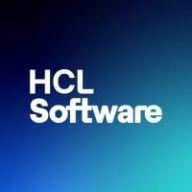More effective than dynamic scanners, but is missing useful learning capabilitiesOne area that Seeker can improve is to make it more customizable. All security scanning tools have a defined set of rules that are based on certain criteria which they will use to detect issues. However, the criteria that you set initially is not something that all applications are going to need. The purposes for which applications are designed may differ in practice in the industry, and because of this, there will always be tools that sometimes report false positives. Thus, there should be some means with which I can customize the way that Seeker learns about our applications, possibly by using some kind of AI / ML capability within the tool that will automatically reduce the number of false positives that we get as we use the tool over time. Obviously, when we first start using the scanning tool there will be false positives, but as it keeps going and as I keep using the tool, there should be a period of time where either the application can learn how to ignore false positives, or I can customize it do so. Adding this type of functionality would definitely prevent future issues when it comes to reporting false positives, and this is a key area that we have already asked the vendor to improve on, in general. On a different note, there is one feature that isn't completely available right now where you can integrate Seeker with an open-source vulnerability scanner or composition analysis tool such as Black Duck. I would very much like this capability to be available to us out-of-the-box, so that we can easily integrate with tools like Black Duck in such a way that any open source components that are used in the front-end are easily identified. I think this would be a huge plus for Seeker. Another feature within Seeker which could benefit from improvement is active verification, which lets you actively verify a vulnerability. This feature currently doesn't work in certain applications, particularly in scenarios where you have requested tokens. When we bought the tool, we didn't realize this and we were not told about it by the vendor, so initially it was a big challenge for us to overcome it and properly begin our deployment.



